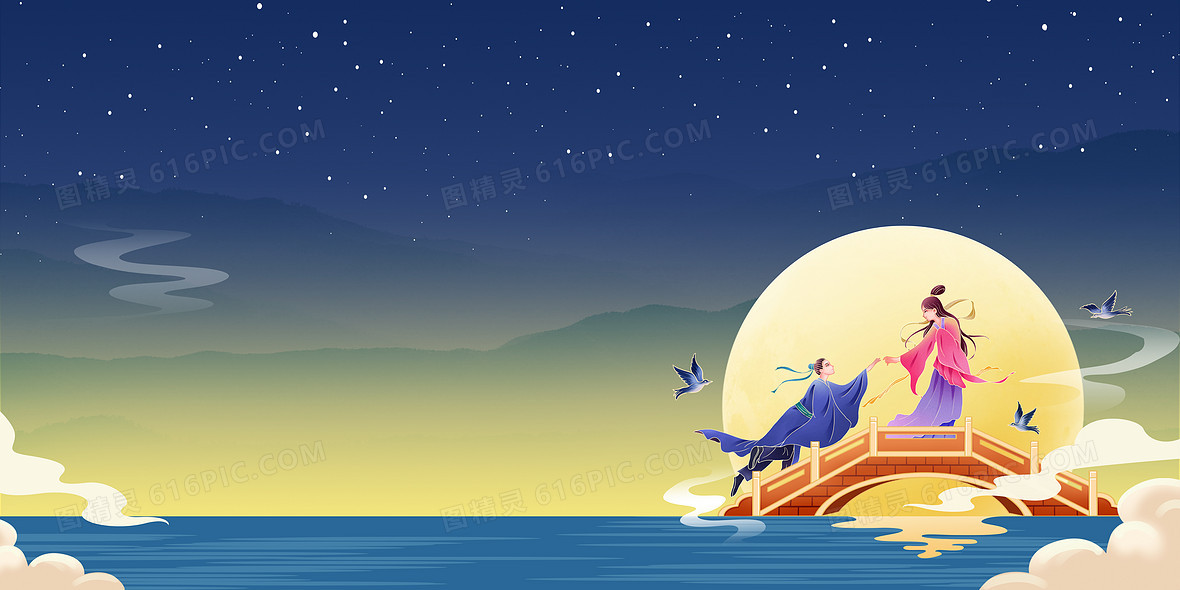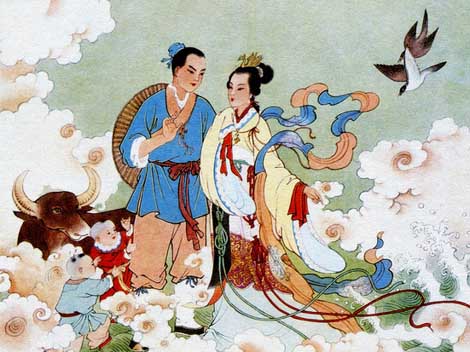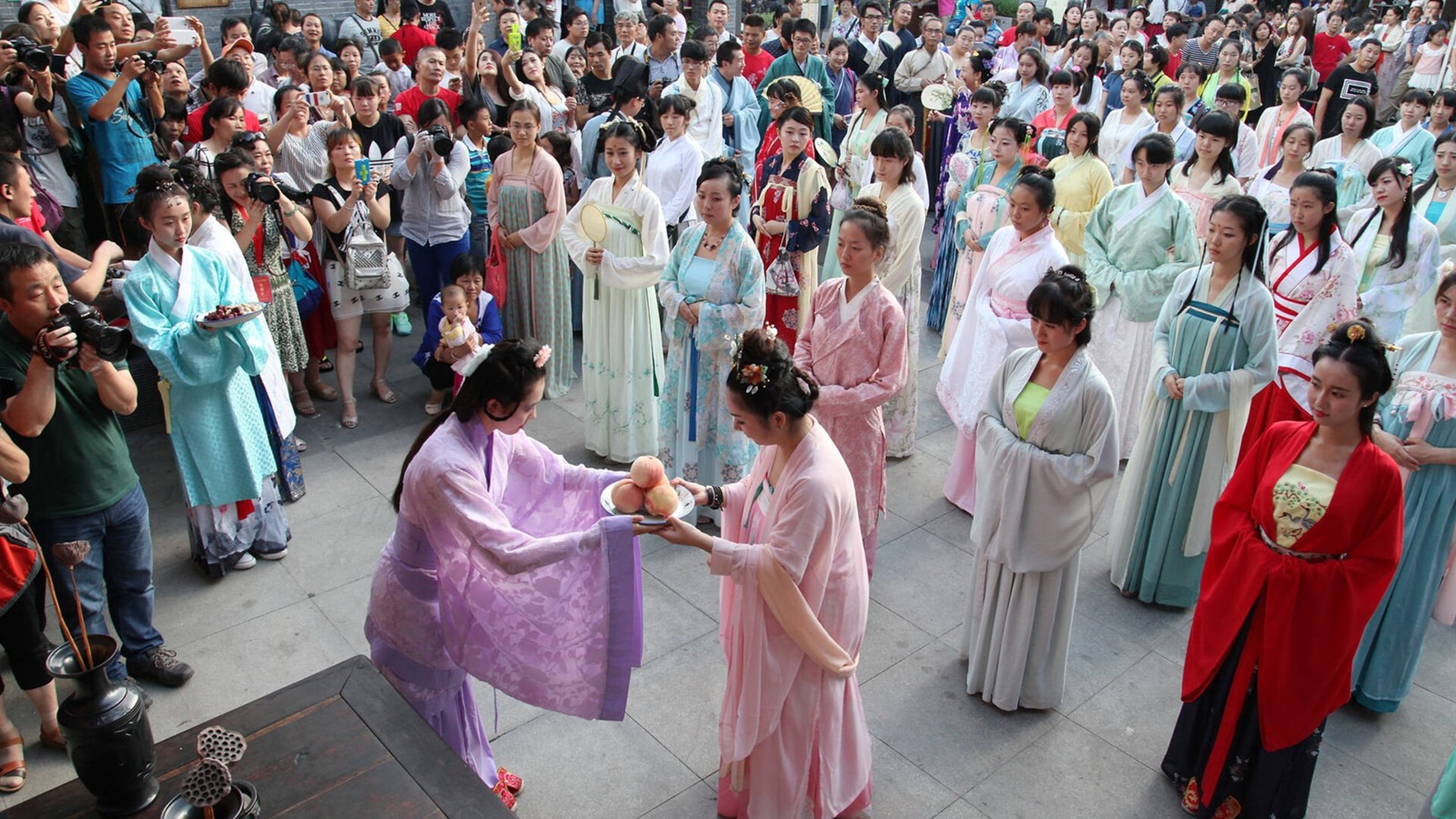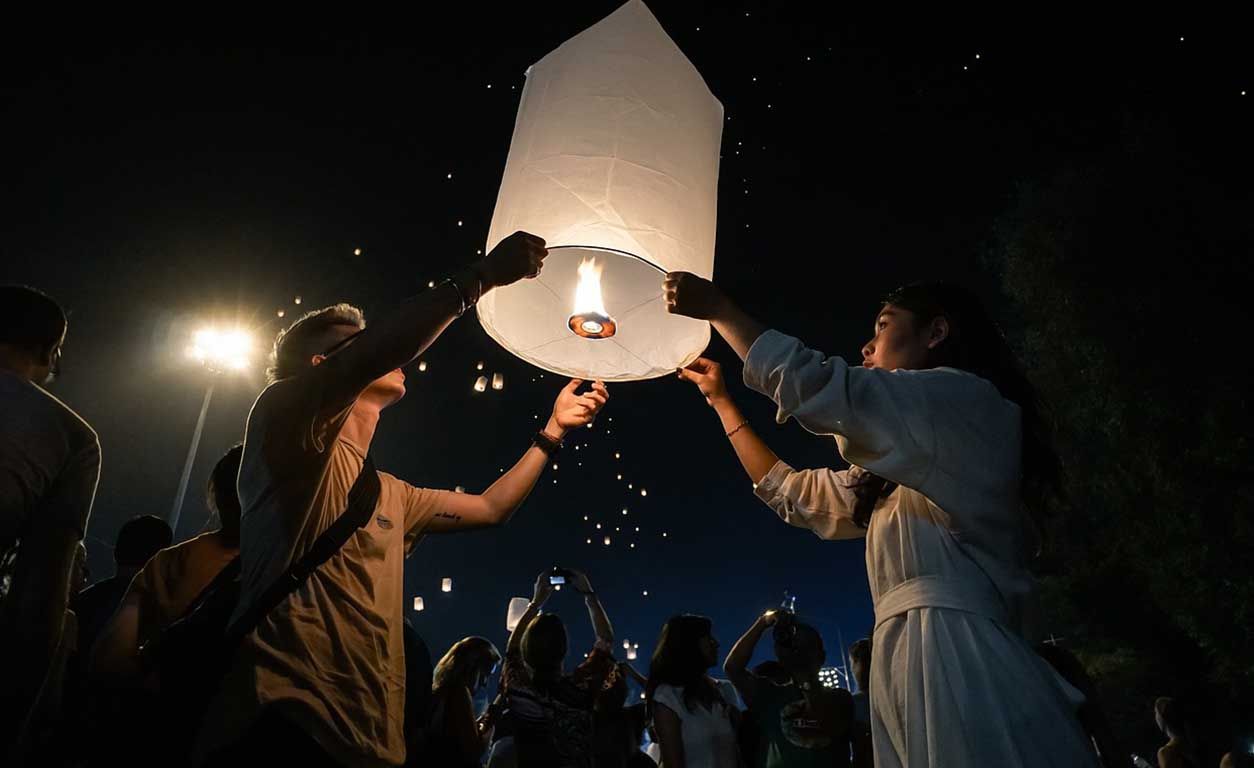
The Qixi Festival, also known as the “Qiqiao Festival” or “Double Seventh Festival,” is one of China’s most important traditional festivals. Originating from the romantic legend of the Cowherd and the Weaver Girl, it has been celebrated for over two thousand years and is often regarded as China’s own “Valentine’s Day.”
The festival comes from an ancient myth—the tragic love story of the Cowherd (Niulang) and the Weaver Girl (Zhinu). Zhinu, the daughter of the Heavenly Emperor, was gifted and skillful at weaving, while Niulang was a hardworking young man from the human world. The two fell in love and married, but angered the Heavenly Emperor, who separated them across the Milky Way. They were only allowed to reunite once a year on the seventh day of the seventh lunar month, when magpies would form a bridge across the sky. This poignant story became the core symbol of Qixi, expressing people’s longing for faithful and everlasting love.

In ancient times, Qixi was not only a festival for lovers to reunite, but also a day for women to showcase their wisdom and craftsmanship, hence the name “Qiqiao Festival” (Festival of Skill). Traditional customs included:
Qiqiao (Begging for Skills): Women threaded needles under the moonlight, praying for dexterity and ingenuity.
Praying to Zhinu: Young women offered prayers to the Weaver Girl, hoping for a happy marriage and skillful hands.
Star-gazing: People observed the Milky Way on this night, expressing their yearning for the Cowherd and Weaver Girl’s reunion.
Needle-threading contests: Competitions were held to see who could thread a needle the fastest by moonlight, symbolizing cleverness and skill.

Today, Qixi is more commonly celebrated as China’s Valentine’s Day. Couples exchange gifts, go on dates, and express their love, while businesses launch promotional events. At the same time, the festival also reminds people to cherish family bonds and friendships, since its essence lies in the celebration of sincere emotions.

The Qixi Festival is not only a romantic holiday but also a vivid reflection of traditional Chinese culture. It blends astronomy, folklore, and literature, embodying the ancient people’s yearning for love, family, and a better life.



